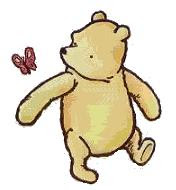At first glance, the words in Macbeth seem to be a jumble of poems, put into a blender, swished around, with rhyming words at the ends. However, when we look closer, we can make sense of what he is saying, and then understand the play, meanwhile enjoying the way things are written by Shakespeare. According to Dawkins, "Langauage seems to 'evolve' by non-genetic means, and at a rate which is orders of magnitude faster than genetic evolution" (p 189).
We can nod our heads, and agree with this, because already, we speak differently than our parents did when they were kids. The language gap is even greater with our grandparents, and greatgrandparents. In the 70s, they would say 'groovy', whereas now we would say 'cool'. Somewhere in between there, people would refer to it as 'neat'. Likewise, at one point, people actually did talk the way Shakespeare writes. Of course, not in rhyme, because that would just annoy people, having to rhyme all the time; however, they used vocabulary like beguile and compunctious. Although we wouldn't say things like "I beguiled my parents into letting me go out this weekend", or "I was siezed by compunction when I came home later that night", we can still figure out what the point of the sentence is.
However, if we were to look at language that was from even further back, we would not even be able to get the basic concept.
Could it be, that hundreds of years from now, or even just twenty, people will look at the way we speak today, and laugh about it? And wonder how in the world we ever could speak like that in a day to day situation?
We can nod our heads, and agree with this, because already, we speak differently than our parents did when they were kids. The language gap is even greater with our grandparents, and greatgrandparents. In the 70s, they would say 'groovy', whereas now we would say 'cool'. Somewhere in between there, people would refer to it as 'neat'. Likewise, at one point, people actually did talk the way Shakespeare writes. Of course, not in rhyme, because that would just annoy people, having to rhyme all the time; however, they used vocabulary like beguile and compunctious. Although we wouldn't say things like "I beguiled my parents into letting me go out this weekend", or "I was siezed by compunction when I came home later that night", we can still figure out what the point of the sentence is.
However, if we were to look at language that was from even further back, we would not even be able to get the basic concept.
Could it be, that hundreds of years from now, or even just twenty, people will look at the way we speak today, and laugh about it? And wonder how in the world we ever could speak like that in a day to day situation?



